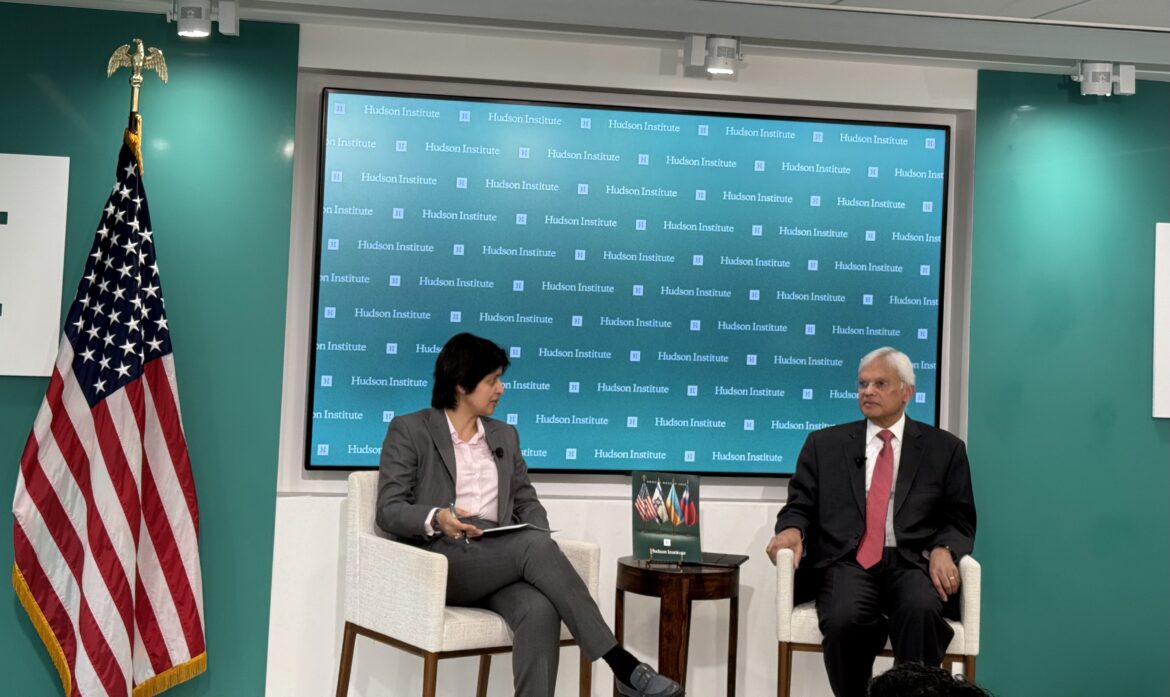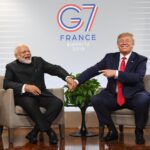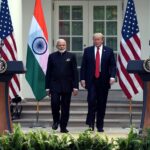Prominent US-India expert Ashley Tellis emphasized that the United States maintains relationships not only with India but also with its South Asian neighbors and will “pursue its interests,” wherever they lead. However, he acknowledged potential “adjustments,” in US engagement with South Asia, as he does not foresee the Trump administration making the region, outside of India, a top priority.
Speaking at the Motwani Jadeja US-India Dialogue Series on March 11, 2025, at the Hudson Institute, hosted by Research Fellow, India and South Asia, Aparna Pande at the Institute in Washington DC, Tellis, Tata Chair for Strategic Affairs and a senior fellow at the Carnegie Endowment for International Peace, made it clear that India cannot expect Washington to delegate its regional policy solely to New Delhi.
“If India expects the United States to simply subcontract its regional policy in the subcontinent to India, it’s not going to happen, because the United States has independent relationships with all the countries in India’s periphery,” Tellis underscored. “Now I don’t think this administration is going to double down on the relationships with India’s smaller neighbors to the neglect of the relationship with India, but I think it will pursue its interests where its interests lead.”
He predicted that the second Trump administration would largely follow the same approach adopted by the previous administrations.
“Even the Biden administration maintained a relationship with Bangladesh that India was uncomfortable about. It would have preferred to maintain a decent relationship with Pakistan if the Pakistanis didn’t get in the way,” he pointed out, noting that President Trump is unlikely to take a fundamentally different approach.
Tellis said he believes the Trump administration will continue to foster strong ties with India, as it recognizes the strategic importance of the relationship given its wider objectives. However, he reproached the administration for lacking a clearly defined set of priorities, warning that this uncertainty will likely persist for an extended period.

“I don’t know today what the grand strategic objective of the Trump administration is. I understand the desire to Make America Great Again. But what does that translate into? Does making America great again mean protecting a global order that serves our interests? The President seems to be disinclined to buy into that vision. Does it mean protecting the hemisphere and the hemisphere alone?” he questioned.
He noted that some officials in the administration appear to favor a more isolationist approach, focusing primarily on the Western Hemisphere. If that is the case, he argued, it should be made explicit, as such a strategy has broader implications for allies, including India, Europe, and Japan.
To a question about India retaining bipartisan consensus within the American policymaking circles, and whether he foresees challenges to that consensus under the current administration, Tellis expressed concern that this long-standing support “will fray for two reasons.”
He explained that first, India’s evolving domestic politics has introduced new complexities that intersect with the political landscape in the United States, creating challenges that did not exist three decades ago. Second, political polarization in the US has reached a level where no issue remains immune.
It is entirely possible that there will be times where one political party uses developments in India to embarrass its competition across the aisle, and that is equally true in India as well, he observed.
On the Indo-Pacific strategy, the Quad, and US-India relations in the context of China, Tellis highlighted a key disparity in strategic positioning.
The United States is a powerful country and has the luxury of adopting confrontational policies toward China with relatively low costs to itself, he explained. He added that India, however, is much weaker than both the United States and China and is located in uncomfortable proximity to China. So, India’s freedom of maneuver vis-à-vis China is much less compared to that of the United States.
Tellis also suggested that while the Indo-Pacific strategy was driven by Trump administration officials, it may not have been a personal priority for President Trump himself.
“You had a Trump administration that had a very clear vision of what an Indo-Pacific strategy ought to be like, and they articulated that very clearly in several documents, and they actually executed it,” he said. However, he noted that Trump had a “much more iconoclastic view” and was open to a potential rapprochement with China – something that may not have been shared by many of his officials.
As the world waits to see how a second Trump administration navigates these policies, Tellis acknowledged lingering doubts.
“Today, I’m left with the same degree of uncertainty,” he admitted. He then went on to raised questions including Will the second Trump administration provide evidence that the President is committed to the Indo-Pacific strategy he once articulated? or Will there be a scenario where the President moves in one direction and his administration in another?
“I think this is the question that’s certainly on the mind of all our Asian allies at this point and only time will bring an answer. And it may bring uncomfortable answers for which we need to brace ourselves,” he said adding a cautionary note.






